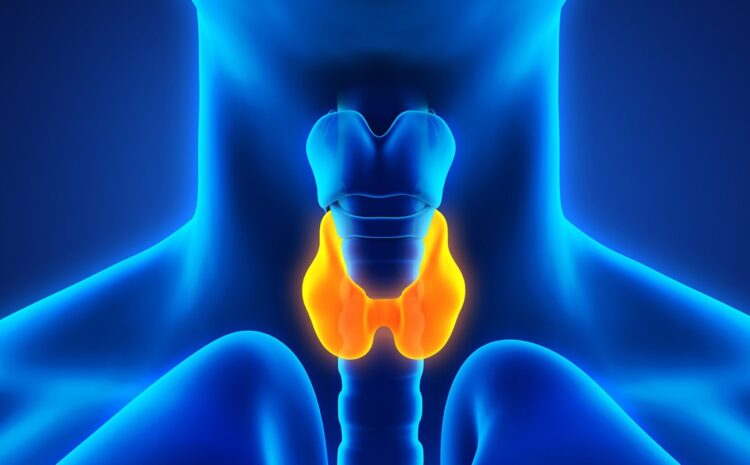Thyroid: Understanding the Gland and Its Impact on Health

TABLE OF CONTENTS
- Hypothyroidism
- Hyperthyroidism
- Symptoms of Hyperthyroidism
- Symptoms of Hypothyroidism
- Diet and Nutrition
- Impact of Thyroid Disorders on Pregnancy
- Management and Treatment during Pregnancy
There is a gland called the pituitary gland present in our skull which maintains the levels of T3 and T4 in our blood with the help of TSH hormones that it produces. If it senses high or low levels of T3 or T4 hormones in the blood, it releases a hormone called TSH (thyroid stimulating hormone). TSH goes to the thyroid gland and tells it to maintain the levels of T3 and T4 in blood by regulating their secretion.
It can affect anyone at any age. Women have a higher probability of getting diagnosed as compared to men.
When the thyroid gland does not produce the right amount of T3 or T4 hormones, it can result in either excess or inadequate levels of T3 and T4 hormones in our body. There are primarily two types of thyroid disorders: hypothyroidism and hyperthyroidism.
- Hyperthyroidism Now since Thyroid hormones are responsible for metabolism, excess levels cause a high rate of metabolism in which the body uses energy at a high rate as compared to normal. This leads to tiredness and loss of body weight. This situation is known as hyperthyroidism. The most common cause of hyperthyroidism is Graves’ disease.
- Hypothyroidism – On the contrary, if the level of thyroid hormones is less in the body, the body will have a low metabolism rate and will result in weight gain and tiredness.
-
Symptoms of Hyperthyroidism
- Fatigue
- Weight loss
- Tremors in muscles
- Increased heart rate
- Mood swings
- Irregular menstrual cycle
- Eye problem
-
Symptoms of Hypothyroidism
- Fatigue
- Weight loss
- Intolerance to cold temperature
- Hair problem
- Irregular menstrual cycle
Treatment options for hypothyroidism typically involve hormone replacement therapy, while hyperthyroidism can be managed through medication, radioactive iodine therapy, or surgery.
Thyroid disorder is diagnosed by using combination of physical examination and measuring hormonal levels by blood tests. Important blood test include:-
Thyroid Function Test (TFT) – Thyroid function test is the most common blood test done to detect abnormal levels of thyroid hormone in the body. It constitutes of three parameters:-
TSH – thyroid stimulating hormone
T3 – triiodothyronine
T4 – thyroxine
Thyroid function test is available on www.healthsquad.in from all our partner labs at the comfort of your home. Results are available on the same day.
Lorem ipsum dolor sit amet, consectetur adipiscing elit. Ut elit tellus, luctus nec ullamcorper mattis, pulvinar dapibus leo.
